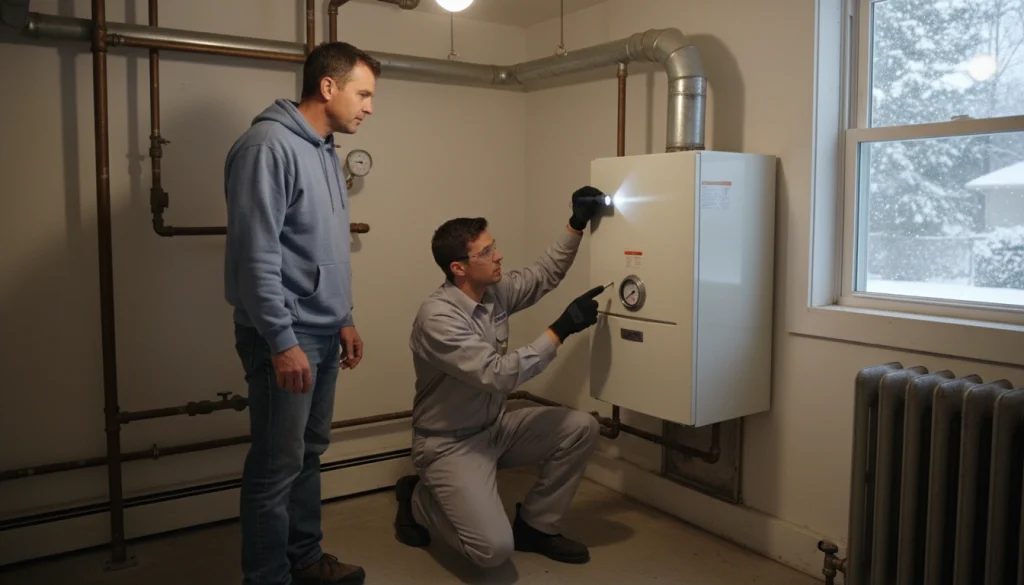As temperatures begin to drop, your boiler becomes one of the most vital systems in your home. Deep winter puts extra stress on heating equipment, and the last thing you want is a surprise breakdown in the middle of a snowstorm. Taking time now to prepare your boiler ensures better performance, improved efficiency, and reliable comfort all season long.
Below are the essential steps homeowners should take to get their boiler winter-ready—along with a few visual checklist ideas you can turn into simple images or infographics for easy reference.

Check and Adjust Boiler Pressure
Proper boiler pressure is crucial for safe, efficient heating. If the pressure is too low, your boiler may struggle to heat your home; if it’s too high, the system may shut down to prevent damage.
If the reading is outside the recommended range—or you’re unsure what the gauge is telling you—it’s best to have a professional take a look. An expert can safely top up or release pressure while making sure no underlying issue is causing the imbalance.
Flush the System for Better Efficiency
Over time, boilers accumulate mineral deposits, sludge, and rust inside the pipes and radiators. This buildup reduces efficiency and forces the boiler to work harder just to maintain normal temperatures.
A system flush clears these obstructions, helping heat circulate more evenly. Some homes may benefit from a basic flush, while others need a deeper cleaning such as a power flush.
A professional flushing not only improves comfort but can also extend the life of your boiler by preventing wear from internal blockages.
Inspect Venting and Exhaust Systems
Clear ventilation is essential for both safety and proper operation. Blocked or partially obstructed vents can cause:
- Inefficient heating
- Frequent boiler shutdowns
- Dangerous carbon monoxide buildup
Before winter hits, make sure all exterior vents are clean and free of debris such as leaves, snow, or nests. Inside, check that nothing is leaning against or covering the boiler’s intake areas.
A professional boiler technician will also inspect the flue for proper slope, secure connections, and any signs of corrosion—all issues that should be addressed before heavy winter use.
Clear and Check Condensate Drains
High-efficiency condensing boilers produce condensation during operation. This water exits through a condensate drain, typically a small plastic pipe leading outside or to a nearby drain.
In deep winter, these lines can freeze if they aren’t well-insulated or properly sloped. A frozen condensate line can cause your boiler to shut down entirely.
Before temperatures dip:
- Inspect the line for cracks or blockages
- Make sure the pipe is insulated
- Ensure the termination point is clear of obstructions
A quick professional check can prevent the frustration of a no-heat emergency during freezing weather.
When to Call a Professional
While visual checks are helpful, a comprehensive boiler tune-up is the best way to ensure everything is functioning safely and efficiently. Scheduling maintenance before the first deep freeze gives technicians the chance to correct issues long before they become urgent.
Deep winter doesn’t have to mean unpredictable heating. If you want peace of mind before the snow arrives, schedule your boiler inspection and tune-up with Roberts Heating & Air Conditioning, Inc. today.

